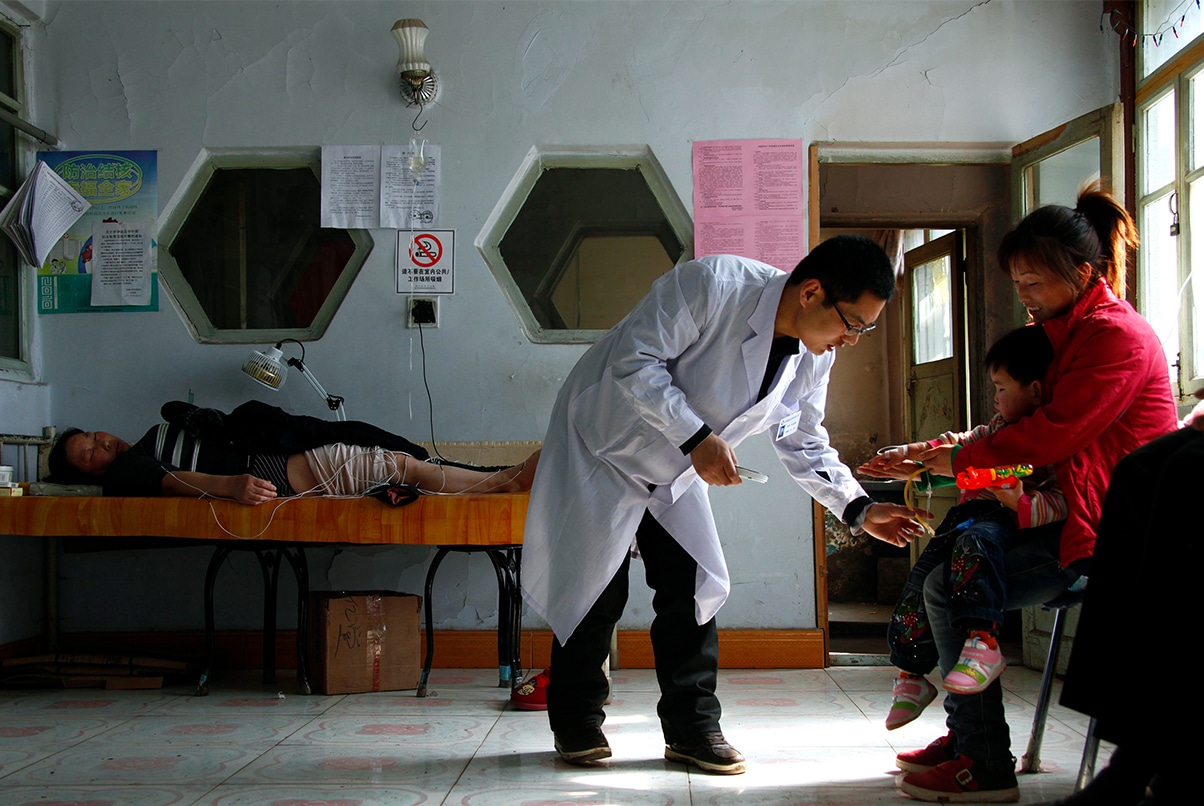- October 6, 2014
Developing More Equitable and Efficient Health Insurance in China
In this new policy memorandum, Shenglan Tang argues that many socioeconomic and institutional factors have contributed to these inadequacies. For one, after the introduction of new health insurance schemes over the past decade, hospital admission rates in China have increased significantly. Indeed, many hospital admissions in China might not be essential from a medical point of view. In addition, out-of-pocket payments, as a percentage of household consumption expenditure, have risen in many provinces. And China is undergoing a profound demographic transition, becoming an aging society faster than anticipated. Noncommunicable chronic diseases (NCDs) account for over 85 percent of the total burden of diseases in China. So the demand for quality healthcare, particularly for sophisticated high-tech care, has risen significantly in recent years.
Tang’s memo begins with a brief introduction of the evolution of Chinese health insurance schemes, including the extension of universal health coverage in recent years. It then analyzes the political, socioeconomic, and institutional factors affecting the performance of China’s current schemes. Finally, and most important, it aims to offer a number of policy options for financing and managing health insurance schemes. The central objective of the memo is to offer ideas that would provide more financial protection for China’s insured—and improve the efficiency of using limited resources for healthcare coverage. Tang’s policy ideas are targeted mainly at China’s central and local government policymakers, as well as health insurance management agencies.
Stay Updated with MacroPolo
Get on our mailing list to keep up with our analysis and new products.
Subscribe

